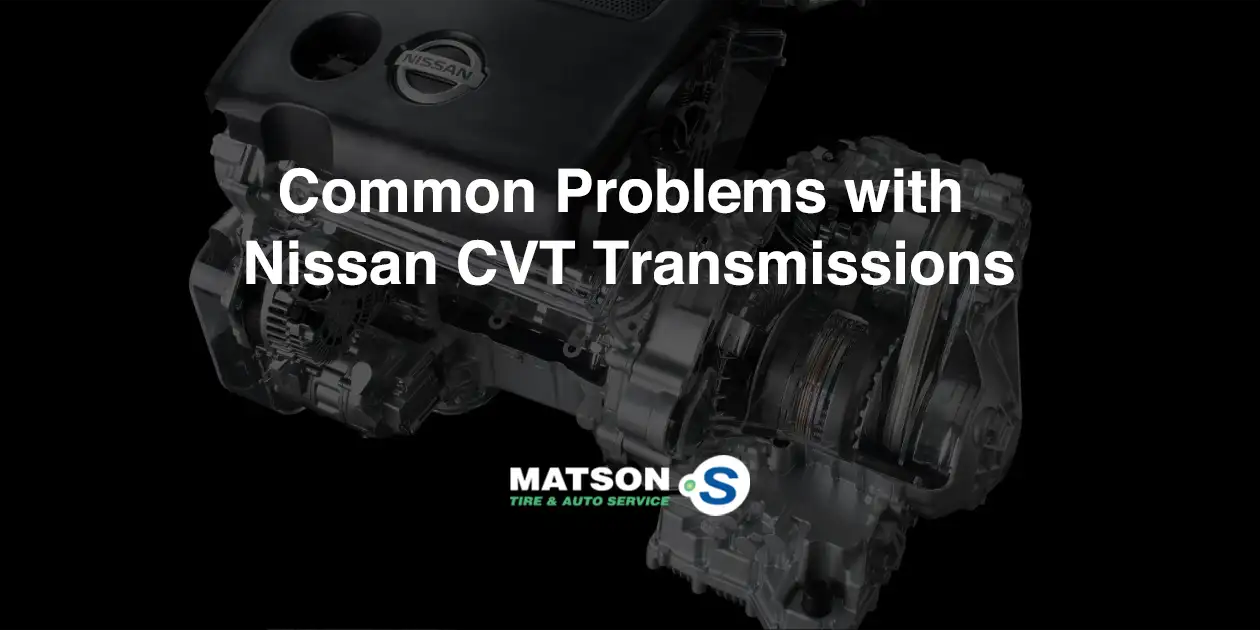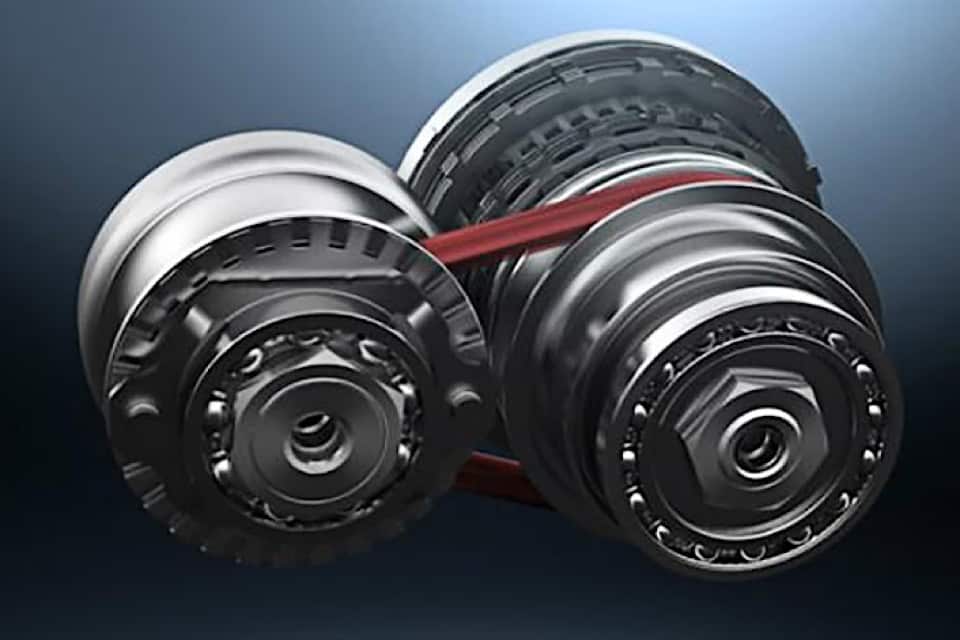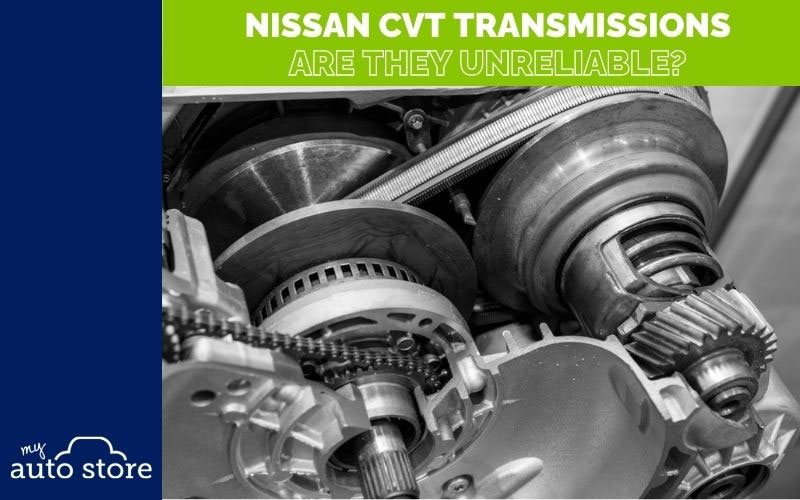Nissan’s CVT transmissions have been plagued with various issues, leading to a class action lawsuit against the company. Common problems include overheating, slipping, and sudden loss of acceleration due to belt wear.
Despite the concept being good, Nissan’s CVTs have faced numerous design flaws. Owners often experience shuddering and a complete transmission failure in severe cases. The CVT gearboxes can emit whining or grinding noises while driving, indicating potential problems. It’s crucial for Nissan owners to be aware of these issues and take proactive maintenance measures to prevent costly repairs.
Stay informed to avoid potential transmission troubles and ensure your Nissan performs reliably on the road.
Identifying Nissan Cvt Issues
When it comes to Nissan vehicles equipped with a Continuously Variable Transmission (CVT), it’s crucial to be aware of common problems that may arise. Identifying Nissan CVT issues early can help prevent costly repairs and ensure optimal performance of your vehicle.
Common Symptoms
- Shuddering: Feel vibrations or shaking while driving.
- Fluid Leaks: Notice puddles of fluid under your car.
- Overheating: Experience temperature spikes in the transmission.
- Whining Noise: Hear unusual sounds while driving.
- Delayed Engagement: Notice a delay when shifting gears.
- Loss of Power: Experience a decrease in acceleration.
Years Affected
| Model Year | Common CVT Issues |
|---|---|
| 2007-2010 | Overheating and loss of acceleration |
| 2013-2016 | Shuddering and delayed engagement |
| 2018-2021 | Fluid leaks and whining noise |

Credit: matsonauto.com
Major Concerns With Nissan Cvt
Nissan vehicles equipped with Continuously Variable Transmissions (CVTs) have been associated with several major concerns that have affected the performance and reliability of these transmissions. Understanding the specific issues related to Nissan CVTs is crucial for owners to be aware of potential problems and take appropriate measures to address them.
Overheating Problems
One of the major concerns associated with Nissan CVTs is the tendency to overheat. This issue is particularly prevalent after prolonged highway driving or when navigating steep inclines. Overheating can trigger the transmission to enter a fail-safe or “limp” mode, resulting in a noticeable loss of power and drivability. The consequences of overheating can be detrimental to the overall performance and longevity of the CVT.
Slipping And Acceleration Loss
Another significant issue that owners of Nissan vehicles with CVTs may encounter is slipping and acceleration loss. This problem can manifest as a lack of responsiveness when accelerating, potentially leading to safety hazards and decreased driving confidence. The transmission’s reliance on belts makes it susceptible to stretching and wear, which can ultimately lead to complete transmission failure if not addressed promptly.
Acoustic Anomalies
When it comes to Nissan variable transmission problems, one of the most common issues that drivers encounter are acoustic anomalies. These anomalies manifest as unusual sounds and vibrations, indicating potential underlying issues with the transmission system.
Whining And Grinding Noises
Whining and grinding noises are often reported by Nissan vehicle owners with CVT transmissions. These noises can occur during acceleration, deceleration, or even at idle, indicating potential problems with the transmission components or fluid levels.
Shuddering Experience
Another concerning acoustic anomaly experienced by Nissan CVT owners is shuddering. This unsettling sensation is often felt during acceleration or when maintaining consistent speeds, signaling potential issues with the transmission’s internal components.
Mechanical Failures
Mechanical failures in Nissan’s variable transmission system can lead to a range of issues that impact the overall performance and reliability of the vehicle. Understanding these mechanical failures is crucial for Nissan owners to recognize and address potential problems early on.
Belt Wear And Tear
One of the common mechanical failures in Nissan’s variable transmission system is belt wear and tear. Over time, the belts in the CVT system can experience excessive stretching and wear, which can lead to a range of performance issues. This wear and tear can cause the transmission to slip, overheat, and result in a sudden loss of acceleration. If not addressed promptly, it can ultimately lead to a complete failure of the transmission system.
Pulley System Breakdown
Another critical mechanical failure that Nissan owners may encounter is pulley system breakdown. The pulley system is an integral part of the CVT transmission, and any malfunction or breakdown in this component can have severe repercussions. Issues with the pulley system can lead to abnormal noises, whining, and grinding sounds while driving. Additionally, it can cause delayed engagement and result in fluid leaks, all of which can significantly impact the vehicle’s drivability and safety.
Troubleshooting Tips
Discover effective troubleshooting tips for addressing Nissan Variable Transmission problems. Overcoming issues like overheating, slipping, and loss of acceleration can help ensure a smoother driving experience. By understanding common problems with CVT transmissions, you can take proactive steps to maintain your vehicle’s performance and reliability.
Initial Diagnostic Steps
When troubleshooting Nissan variable transmission problems, there are several initial diagnostic steps to follow to identify potential issues. Here are some key steps to take:
- Check the transmission fluid level and condition. Low or dirty transmission fluid can cause various problems.
- Inspect for any visible leaks or damage to the transmission casing or components.
- Scan for error codes using a diagnostic scanner to pinpoint specific issues within the transmission system.
- Conduct a road test to observe any abnormal noises, vibrations, or slipping during acceleration and deceleration.
When To Seek Professional Help
If you encounter persistent issues or are unsure about the diagnosis, it’s crucial to seek professional help from a certified mechanic or transmission specialist. Some signs that indicate the need for professional assistance include:
- Continued transmission slipping or jerking despite fluid checks and basic troubleshooting.
- Unusual noises such as grinding, whining, or clunking that persist after initial inspection.
- Dashboard warning lights related to the transmission system that remain illuminated.
- Any visible signs of fluid leaks or transmission damage that require expert assessment and repair.

Credit: www.nissanproblems.com
Quick Fixes For Cvt Issues
When it comes to addressing CVT problems, there are a few quick fixes that can help resolve common issues. By performing these simple tasks, you may be able to improve the performance and longevity of your Nissan’s CVT transmission.
Fluid Level Check And Replacement
Checking and replacing the transmission fluid is crucial for maintaining the health of your CVT. Low or contaminated fluid can lead to overheating, slipping, and other transmission issues. Here’s a quick guide to checking and replacing the fluid:
- Park your vehicle on a level surface and engage the parking brake.
- Locate the transmission fluid dipstick, typically distinguished by a yellow or red handle.
- Remove the dipstick, wipe it clean, reinsert it, and pull it out again to check the fluid level. Ensure that the fluid is within the recommended range.
- If the fluid is low or discolored, it’s time to replace it. Refer to your owner’s manual for the correct type of fluid and follow the proper procedure for draining and refilling the transmission.
Resetting The Transmission Computer
Resetting the transmission computer can help clear any stored error codes and adapt the transmission to your driving habits. Here’s how you can reset the transmission computer on your Nissan:
- Start by turning off the ignition and popping the hood of your vehicle.
- Locate the vehicle’s battery and disconnect the negative terminal using a wrench or socket. Wait for at least 10 minutes to ensure that the computer resets.
- Reconnect the negative terminal and tighten it securely. Start the vehicle and take it for a test drive to see if the transmission performance has improved.
Preventive Measures
Preventing Nissan variable transmission problems requires proactive steps and regular maintenance to ensure the longevity and efficiency of your vehicle’s CVT system. By adhering to a structured preventive approach, you can mitigate the risk of encountering common issues associated with Nissan CVT transmissions.
Regular Maintenance Schedule
To maintain the health of your Nissan’s CVT transmission, it’s crucial to adhere to a comprehensive and regular maintenance schedule. This includes:
- Regularly checking and replacing transmission fluid as per the manufacturer’s recommendations.
- Following the prescribed service intervals for inspection and maintenance by certified technicians.
- Ensuring that the transmission system is inspected during routine vehicle servicing.
Avoiding Common Stressors
It’s important to be mindful of common stressors that can impact the performance of Nissan CVT transmissions. This involves:
- Avoiding aggressive driving behaviors such as sudden acceleration and abrupt braking, which can strain the CVT system.
- Being cautious when towing heavy loads, as this can exert excessive stress on the transmission components.
- Regularly inspecting for fluid leaks and addressing them promptly to prevent potential damage to the CVT system.
The Future Of Nissan Cvts
Nissan has had a history of problems with their CVTs, with overheating, abnormal noises, and loss of power being common issues. However, the future of Nissan CVTs looks promising, as the company has been investing heavily in redesigning and improving their transmissions to address these problems and provide better performance and reliability for their customers.
Recent Redesigns And Improvements
Nissan has been actively addressing the issues with their CVTs through recent redesigns and improvements. The company has made significant strides in enhancing the durability and performance of their continuously variable transmissions.Reliability Assessments
In light of past problems, Nissan has been subjecting their CVTs to rigorous reliability assessments. These assessments aim to ensure that Nissan CVTs meet the highest standards for longevity and performance, providing customers with a more reliable driving experience. Nissan is focused on improving the design and functionality of their CVTs to overcome past challenges. Recent redesigns and reliability assessments are paving the way for a more robust and dependable generation of Nissan CVTs. By addressing previous issues head-on, Nissan is striving to regain trust and deliver a smoother driving experience for their customers. “`
Credit: myautostore.com
Frequently Asked Questions
What Years Did Nissan Have Cvt Transmission Problems?
Nissan experienced CVT transmission problems in various years due to design flaws and overheating issues.
Is The Nissan Cvt A Good Transmission?
The Nissan CVT transmission has had numerous issues, leading to a class action lawsuit due to poor design.
What Causes A Nissan Cvt To Fail?
Nissan CVTs often fail due to overheating, especially after long highway trips or driving up steep hills. This causes the vehicle to go into “limp” mode, resulting in power loss. Additionally, Nissan’s poor CVT design has led to numerous issues, prompting a class action lawsuit.
What Are The Problems With Variable Transmission?
Common problems with variable transmission include overheating, slipping, sudden loss of acceleration, and shuddering. Excessive wear on belts can lead to complete transmission failure.
What Are Common Nissan Cvt Problems?
Nissan CVTs face issues like overheating, slipping, shuddering, and sudden power loss.
Conclusion
Nissan’s variable transmission has had numerous problems over the years. These problems include overheating, slipping, sudden loss of acceleration, and even complete transmission failure. While the concept of CVTs is good, in practice, they have been plagued with issues. Nissan, in particular, has faced a class-action lawsuit due to the poor design of their CVT gearboxes.
If you own a Nissan with a CVT transmission, it is important to be aware of these potential issues and take necessary precautions to prevent them.
